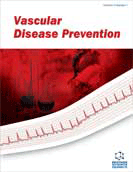Abstract
OBJECTIVE: An epidemiological study to explore the relationship between proinsulin and cardiovascular risk factor clustering. METHODS: 1196 subjects (533 men, 663 women; average age was 46.7 years) aged 35-59 in Pizhou city in Jiangsu province were randomly recruited. Fasting serum proinsulin was measured by a high sensitivity specific monoclonal antibody-based two-site enzyme immunoassay. RESULTS: The mean cardiovascular risk factor score was 0.97, 1.15, 1.53, and 2.04 (p = 0.000), and the rates of clustering of cardiovascular risk factors were 25.8%, 30.8%, 45.8% and 58.5% (p = 0.000) from the lowest to the highest quartile of proinsulin level, respectively. The Spearman correlation coefficient between proinsulin level and cardiovascular risk factors score was 0.308 (p = 0.000). By partial correlate analysis after adjusting for age, sex, body mass index and waist circumference the correlation was 0.2095 (p = 0.000). The results of non-conditional univariate logistic regression and multivariate stepwise logistic regression indicated that the concentration of proinsulin was associated with cardiovascular risk factor clustering (independent of age, sex, body mass index and waist circumference) and the odds ratio (95% confidence interval) was 1.656 (1.483∼1.851) and 1.381 (1.206∼1.582), respectively. CONCLUSIONS: There was a dose-response relationship independent of age, sex, body mass index and waist circumference between proinsulin and the clustering of cardiovascular risk factors in this Chinese middle-aged population.
Keywords: proinsulin cardiovascular disease risk factors epidemiology.


